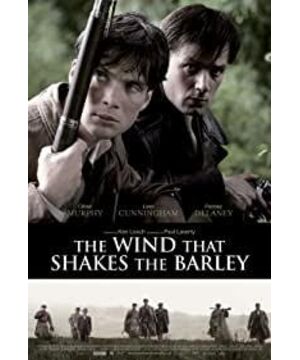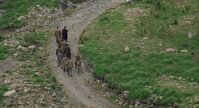The wind that shakes the barley (2006) : A revolution may need violence to ignite a monstrous flame. "Revolution is not a dinner party, an essay, a painting or embroidery, it cannot be so elegant, so calm, gentle, so gentle and submissive. "Revolution is an insurrection, a violent action by one class to overthrow another class." On the other hand, a revolution requires negotiation and compromise to end it, whether it is condoning illegal acts in wartime or negotiating with a class that is spurned by mouth. In terms of degree, the former has clear boundaries and is easy to do; the latter is difficult to adjust, and it is difficult to do it. Those who were able to die in the revolution were lucky from this point of view, the dead were honored, and they avoided the possibility of being criticized for compromise. The degree of compromise is extremely difficult to grasp, your honey is my arsenic. Taking this as a clue, the film uses prose-style brushstrokes to describe the struggle of the Irish Republican Army. The emerald green hills of Ireland, the rustling sound of the breeze brushing the weeds and the sudden death, the style is solemn, and the camera often moves out of close-up. Take a broader look at the fraught fighting sides and the sparse gunfire. "It's easy for people to know what they're against, but it's hard to know what they're after," as the protagonist Damien's last words stated.
View more about The Wind that Shakes the Barley reviews










